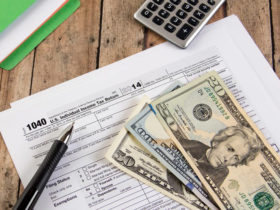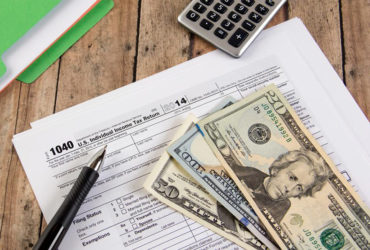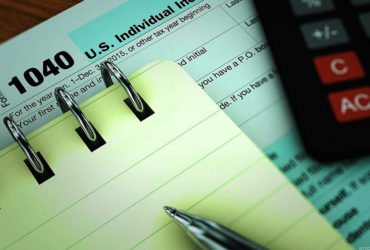There is a considerable tax advantage to home ownership. A homeowner pays interest on his mortgage and local property taxes on his home, while a person who rents an apartment pays rent. The latter, however, includes a sum to enable the landlord to pay the interest and tax; hence the renter pays these costs indirectly. Because of this hidden cost for the renter, the homeowner has a tax advantage over the person who rents. If his income, exemptions, and other deductions are the same as the renter’s, he will pay fewer taxes.
The homeowner may deduct from his income, when calculating his taxes, interest on his mortgage and property taxes. Rent, of course, cannot be deducted. This can best be illustrated by an example. Assume two childless couples whose circumstances are identical except that one rents and one is buying a house. Both have adjusted gross incomes of $10,000 and total deductions because of medical expenses, contributions to charity, their church, and so forth, amount to $720. The couple buying a home, however, have additional deductions of $1,920 due to interest and property taxes ($45 per month taxes and about $115 per month interest is not unreasonable for even a modest home.) The couple buying a home will take a total deduction of $2,640 while the one renting can take only $1,500. (They will take the standard 15 percent, which is higher than their $720 itemized figure.) The homeowners’ taxable income is $1,140 lower. Their actual tax liability is $217 less than that paid by the couple who rent. Moreover, the higher the tax bracket, the greater the tax advantage from home ownership. The nature of our tax laws enables the homeowner to pass part of his Interest and property taxes on to Uncle Sam.
Even if the homeowner no longer has mortgage payments to make and lives in a community which has no property taxes, he is receiving favorable tax treatment because of imputed rent income which he receives, but on which he pays no taxes. Again an example will illustrate. Assume two individuals working side by side for the Ajax Corporation, each making a salary of $10,000 per year. Each owns a home which is fully paid for, but while Mr. A lives in his, Mr. B rents his and lives with relatives. Both have a $20,000 home free and clear. Mr B receives $1,000 of net cash rental income after all expenses including his property taxes. He pays a tax on $11,000. Mr. A, in reality, should look upon his cost-free living as worth about $1,000 which he really receives as income in kind. For these two individuals to be treated equally they should both pay taxes on either $10,000 or $11,000. But Mr. A pays on $10,000 and Mr. B on $11,000. The same logic would apply if, while Mr, A invested his savings in his home, Mr. B rented and invested his savings in high-grade corporate bonds. After a time Mr. B would have interest income which is taxable, while Mr. A’s rent income received in kind is not.
Finally, some people can depreciate part of their homes for tax purposes. The homeowner who uses part of his home for business purposes can deduct from taxes that proportion of heat, light, repairs, maintenance, depreciation, etc., which the business use is to the total house. If one-third of the house is used for business, he can deduct one-third of those expenses. The same is true if he rents one-third of the house.
















